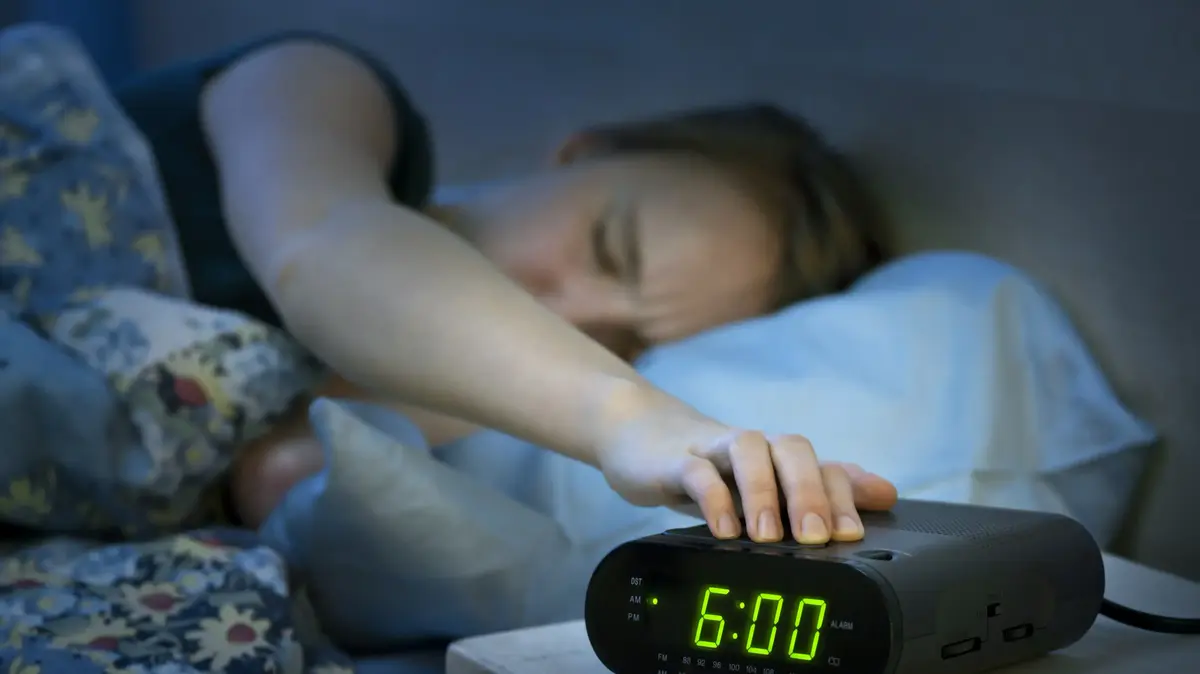health
news
Immediately switch to winter time.
This way it will affect your health
On the night between Saturday and Sunday we will switch to winter time, so we decided to check how this transition affects our health and whether it is possible to prepare for it to pass it more easily.
Dr. Abdel Rahman Nader, Head of the Sleep Laboratory at Misgav Ladach Hospital of Meuhedet, with all the answers
Tags
winter clock
tiredness
Autumn
depression
Walla!
health
Sunday, 24 October 2021, 23:23 Updated: 23:24
Share on Facebook
Share on WhatsApp
Share on general
Share on general
Share on Twitter
Share on Email
0 comments
This coming Saturday (October 31) we will move to winter time, which means we will move the hands of the clock one hour back.
While many of us get pissed off at the fact that the days are getting shorter, there is a logic behind moving the clock.
Daylight is the most powerful stimulus to our biological clock, and naturally light has determined the hours of sleep and waking of humans since time immemorial.
The rationale behind moving the clock districts every October and March is very simple: adjusting citizens' waking hours to the hours of sunrise in order to save energy wasted on lighting.
More on Walla!
What to do against winter depression?
Here are some tips
To the full article
In summer there are more light hours in the day, so you should get up earlier so as not to waste precious light time in sleep and thus also gain an extra hour of light in the evening.
Due to the geographical location of the State of Israel, at the height of summer the sun rises about two hours earlier than at the height of winter, so if we had not moved the clock to "daylight saving time", the sun would have risen in June around 4:30 in the morning.
A person who wakes up every day at 6:00, for example, would thus lose an hour and a half of light.
Moving the clock in the summer causes the sun to rise around 5:30 instead.
On the other hand, if even in winter we had adopted this time zone, the sun would have risen in January at about 7:30 in the morning - and so the risers would get up in the dark.
On October 31, at 2:00 AM, the hands must be moved back one hour to 1:00 AM (Photo: Walla! NEWS system, Walla! News system)
How does moving the clock affect our body?
"In terms of sleep hours, moving the clock directly affects the biological clock, thus accumulating a state of fatigue in the mornings and difficulty falling asleep at night, in parallel with the loss of sleep hours and cumulative fatigue," explains Dr. Abdel Rahman Nader, head of the sleep lab at Misgav Ladach Hospital, Meuhedet "The health consequences are more pronounced in the transition from winter time to daylight saving time, during which time the person loses about 40 minutes of sleep time, even though the body learns to adapt to changes quickly."
Dr. Nader adds that In this condition, fatigue can build up leading to a state of social "jet lag" which in the long run can lead to obesity, depression and an increase in cardiac events. The good news is that these effects on the body recede after a few weeks. "
Take comfort in the fact that the transition to daylight saving time is tougher.
Woman lying tired in bed (Photo: Giphy)
It should be noted that a number of observational studies have examined the issue of moving the clock, and the sweeping conclusion of all of them was that not moving the clock also has an impact on our health.
In studies that did not move the clock in time, an increase in cardiovascular events was observed: chance of heart attacks, sleep disorders including insomnia, mood disorders even to the point of suicidal attempts.
In addition, statistically, there has been an increase in the number of road accidents.
How can you prepare for the transition to "winter time"?
1. Maintain a proper sleeping environment: A quiet room without a TV, mobile phone or any other electrical device
2. It is recommended that the room be well ventilated with an average temperature (neither hot nor cold)
3. An average of 7 to 8 hours of sleep is
recommended 4. Recommended for a short nap, no less than 20 minutes and not more than an hour
5.momltz go to bed and leave it at regular times
6.cslosh to four days prior to the transition to winter time, right into bed later 15-20 minutes at a set time and wake up late More
7.It is very important to be exposed to natural sunlight - to stay longer in the sun.
Share on Facebook
Share on WhatsApp
Share on general
Share on general
Share on Twitter
Share on Email
0 comments

